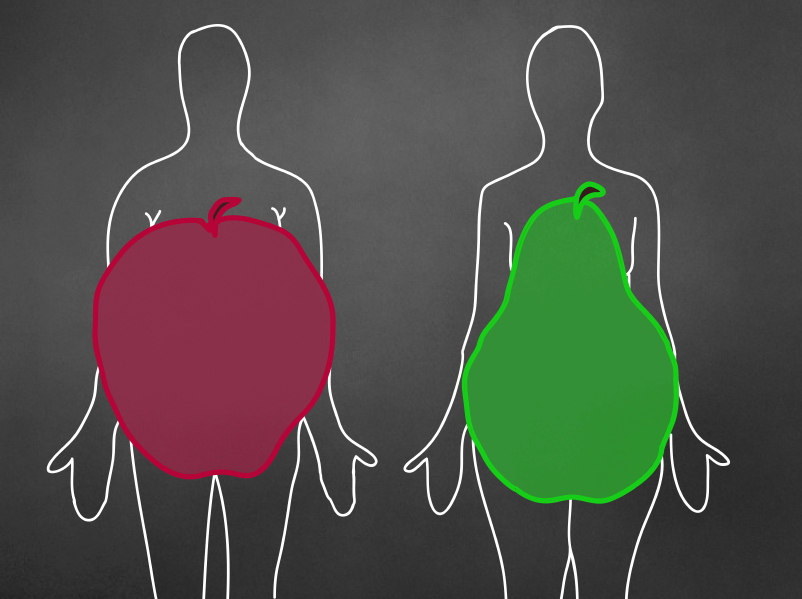Your Body Type May Determine if You Binge Eat

Your body type may be why you are a binge eater…
That’s right! According to a new study from Drexel University, certain body types make a person more likely to binge eat. This is the first investigation to make the connection between body fat distribution, body image and disordered body image.
The study published in The American Journal of Clinical Nutrition tracked over 300 women and their eating habits for two years. The women’s risk of weight gain, eating habits, body dissatisfaction, and symptoms of depression were analyzed at the start of the study and at six weeks, six months, a year and finally two years after the study began.
The researchers determined that women with apple shaped bodies had a 53 percent greater risk of experiencing “loss of control” eating episodes than those with other body types. These women were also the least satisfied with their bodies regardless of their total weight. Loss of control eating is a serious sign of a potential binge eating disorder. Binge eating is defined as eating unusually quantities of food. Loss of control eating is defined as varied out of control eating either in small or large amounts.
“Our findings show that this relationship is important and deserves additional attention,” study co-author Danielle Arigo tells Yahoo Health.
Why Is There A Link?
Lead author of the study, Laura Berner, PhD, a postdoctoral research fellow at the University of California, San Diego Eating Disorders Center for Treatment and Research, explained in the article that the reason why binging is linked to a certain body type is still unknown. One theory is that there may be a genetic of biological mechanism that links a person’s central body fat storage and eating behavior.
In our bodies, out fat cells act like endocrine organs releasing signals to our brain about how hungry and full we are. The theory suggests that our fat influences these hunger signals as they are sent to out brain. Therefore, people with apple-shaped body type may not get the signals they need as easily as those with other body type.
On the other hand, it could be completely psychological. In western culture, the ideal body type is the hour glass figure. We see this body type saturated on the media and in magazines every day. Women whose shape does not fit this mold may be more dissatisfied with their own bodies. This form of self-body shaming is linked to overeating as well.
The author of the study also points that that overweight and obese people have apple shaped bodies so there may be an added negative connotation for those who naturally have this apple shape figure. This can also lead to out of control eating.
“It’s possible that dissatisfaction with one’s weight or shape, coupled with pressure and desire to lose weight, could create stress that is alleviated by eating (in the short-term),” she says. “In the long-term, using food to cope could exacerbate the problem.”
Regardless of the reason, identifying loss of control eating behaviors early is very important to prevent it from escalating to a full on binge eating disorder. There are steps that people can take to avoid loss of control eating.
The most recommended way to improve mood and body satisfaction is through following a regularexercise ro utine. Exercise improves the mood and a person’s body satisfaction even if they do not lose any weight at all. Another way to cope with irregular eating behavior is to monitor stress levels. Stress can also trigger loss of control eating. Berner is hopeful that her study will fuel addition research into apple-shaped bodies and loss of control eating. Hopefully in the future, we will understand why this kind of erratic behavior occurs.
Acceptance of your own body type and changing your idea of a body shape that is “ideal” is crucial for your overall health. If you or someone you love is struggling with substance abuse or addiction, please call toll-free 1-800-777-9588.
Shernide Delva
